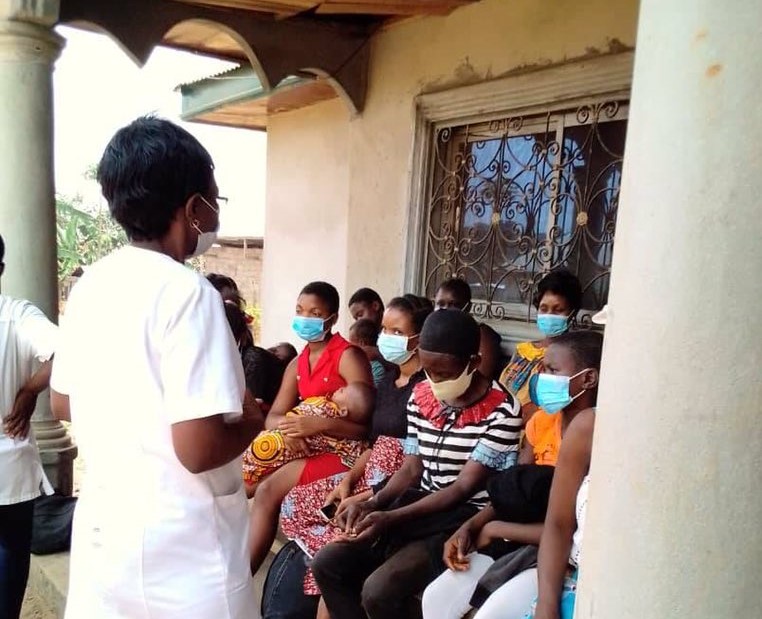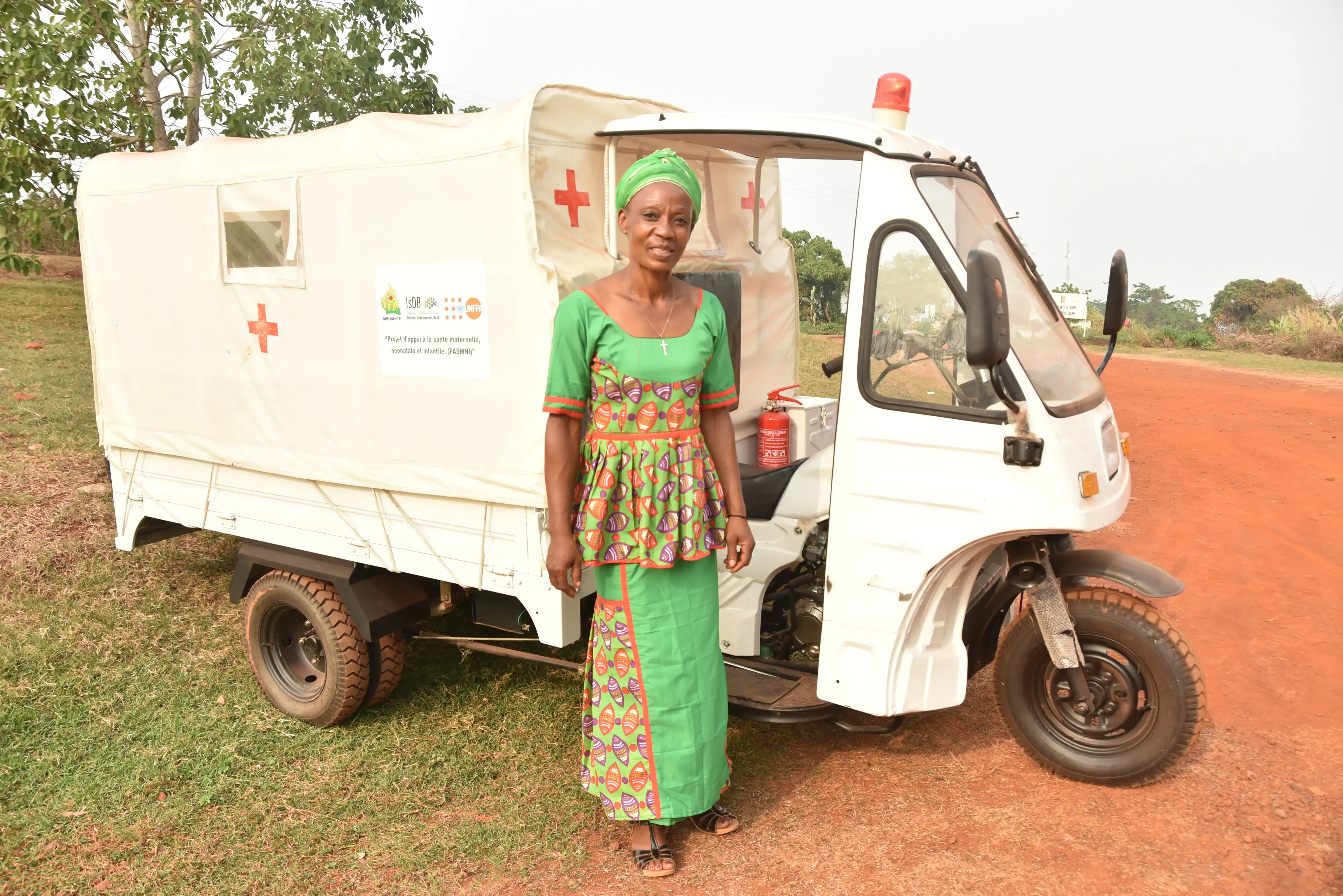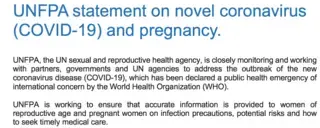Women, adolescent girls, breastfeeding mothers and visibly pregnant women in Kosala village, South West Region, received family planning, antenatal care, HIV screening and other Sexual Reproductive Health (SRH) services during a mobile clinic deployment run by UNFPA in partnership with the Ministry of Public Health. The initiative, carried out under the World Bank Pandemic Emergency Financing Facility (PEF) Project running from November 2020 to April 2021, in both the North West (NW) and South West (SW) Regions aims at reducing preventable maternal deaths and unmet need in Family planning.
To ensure continuity in the provision of essential Reproductive Health services to women and girls amidst the COVID-19 Pandemic and the prevailing humanitarian crisis, UNFPA made use of the Mobile Clinic strategy to reach out to those in the most affected communities with the least access to health care. To this end, the mobile clinics were able to ease access to antenatal consultations to pregnant women and share Baby boxes to vulnerable IDP women who had just given birth during mobile clinic activities organized in the North West Region in 2020.

talks on SRH in Kosala
Village/ February 2021
The mobile clinics provide integrated SRH/GBV (Gender based Violence) services including COVID-19 prevention and protection in hard-to-reach communities. The community health workers deployed offer a wide range of services including; ANC, Postpartum care, Family planning, Sexual Transmittable Infections (STI) management and cervical cancer screenings among others to reach out to the population including youths and adolescents.
Due to the prevailing socio-political crisis opposing government forces and non-state armed groups in these regions, there has been a rise in insecurity, the destruction of health infrastructure and the establishment of ‘ghost towns’ which have significantly contributed to reducing access to basic health services, especially for women and girls. A case in point is the situation of the North West Region as of December 31st, 2019. Then 9% (33/368) of health facilities in the NW were non-functional, with the health districts of Ako, Batibo ,Nkambe and Bafut being the most affected, and 3% were partially functional (DHIS No review report).
Due to prevalent precarious living conditions in which many of these persons live, access to SRH services is a growing life threat, especially for pregnant women. UNFPA, staying true to its Three Transformative Results works hand in glove with its partners to end every preventable maternal death and unmet need for Family Planning in Cameroon by 2030.





